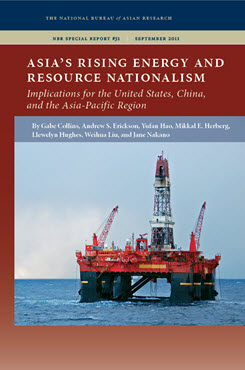Rare Earth Minerals and Commodity Resource Nationalism
China’s reform of its REE industry and its restrictions on REE exports are domestically driven. These changes are aimed at solving the sustainable development problem within its REE industry—resulting from disordered mining and processing, overexploitation, and environmental deterioration—and are not necessarily meant to take advantage of foreign countries. Western countries’ misinterpretation of China’s export controls on REE, particularly amid Sino-Japanese tension in fall 2010, reflects a certain degree of mistrust toward China.
EXECUTIVE SUMMARY
This essay analyzes the recent changes in China’s rare earth elements (REE) policy and their implications for world REE production and consumption, as well as for Sino-U.S. and Sino-Japanese relations.
MAIN ARGUMENT
China’s reform of its REE industry and its restrictions on REE exports are domestically driven. These changes are aimed at solving the sustainable development problem within its REE industry—resulting from disordered mining and processing, overexploitation, and environmental deterioration—and are not necessarily meant to take advantage of foreign countries. Western countries’ misinterpretation of China’s export controls on REE, particularly amid Sino-Japanese tension in fall 2010, reflects a certain degree of mistrust toward China.
- If the U.S. recognized Chinese REE policy as a domestically driven action rather than a behavior aimed at subjugating foreign countries—an economic decision rather than a political one—the issue might not be put on the already crowded agenda of the U.S.-China Strategic and Economic Dialogue.
- If both China and the U.S. could cooperate on the exchange of REEs and environmentally friendly technology, or if the U.S. invested more in REE production in China, then a win-win solution might be obtained, and these important strategic resources would be better protected and utilized. Meanwhile, the U.S. would have enough time to develop new, efficient technologies that substitute for or improve the usage and recycling of REEs.


